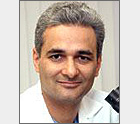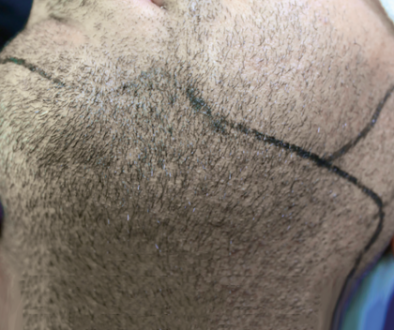Hair Restoration: The Causes and Treatment of Non-Genetic Hair Loss
In this article, recommended hair transplant surgeon Dr. Parsa Mohebi shares his expert knowledge about non-genetic causes of hair loss.
 There are other causes of hair loss that are not treatable that are medically addressed prior to any hair transplant consideration. This is because the root cause of the balding is not from the harmful effects of dihydrotestosterone (DHT). Knowing about these types of hair loss is important to help a person determine how to seek help for their hair loss problem.
There are other causes of hair loss that are not treatable that are medically addressed prior to any hair transplant consideration. This is because the root cause of the balding is not from the harmful effects of dihydrotestosterone (DHT). Knowing about these types of hair loss is important to help a person determine how to seek help for their hair loss problem.
In men, the primary cause of hair loss is from DHT and hair restoration surgery is a natural, proven and permanent method of resolving the issue. Of course, the best course of action is to consult with a hair restoration physician. The Hair Transplant Network does a professional and fantastic job at recommending hair restoration specialists that are leaders in the profession.
The following list provides an overview of other common causes of hair loss in patients who come seeking help but need to resolve these issues first prior to determining if a hair transplant procedure is best for them.
- Telogen effluvium (TE): Temporary shedding of hair at more than the usual rate. This is a common cause of thinning hair and could be seen in both men and women. TE could be seen after any major stressful event or following some hormonal imbalance. Accelerated hair loss after delivery of a baby is one of the most common conditions that most women experience to some levels.
- Instrumental: Breaking of hair (usually from hairstyling treatments) can be seen due to harsh treatment of hair.
- Alopecia areata: Patchy areas of total hair loss (an auto-immune disorder causing local hair loss). In this condition, immune system of the patient target hair follicles that will cause hair loss in patches. Most people who suffer from this condition recover spontaneously without any treatments.
- Scarring alopecia: Patchy or irregular hair loss due to infection, inflammation or injury, which is then followed by scarring. This condition may respond to some medical treatment or in some specific types hair transplant could be considered as an option.
- Trichotillomania: Compulsive pulling of hair due to anxiety or other psychological issues. The hair loss in these patients may not be reversible in some cases. Treatment with hair transplant could be considered if active condition is over and if the patient has been mentally and emotionally stable for a long period of time prior to surgery.
- Medications: There are many medications that have hair loss as one of the side effect. However, typical hair loss in women is generally genetic and might only be accelerated by medications.
- Medical conditions: There are a variety of systemic medical conditions such as Iron Deficiency, Hormonal imbalances, Infectious disease etc. that can have hair loss as one of their signs. A thorough evaluation followed by lab work can find the cause in most cases. We always request lab work in women who have atypical hair loss or the ones who have hair loss without an obvious reason or significant family history. Although lab work is normal in most cases, discovering a medical condition that could be treated can save a lot of time and effort for the treatment of hair loss in these women
- Other skin disorders: There are a wide range of skin conditions that may cause hair loss. Autoimmune disorders such as lupus are the most common. When a hair transplant surgeon thinks any other cause could be the root they may order additional medical test or give a referral to more appropriate medical follow up.
Dr. Parsa Mohebi, MD
—-
David (TakingThePlunge)
Editorial Assistant and Forum Co-Moderator for the Hair Transplant Network, the Coalition Hair Loss Learning Center, and the Hair Loss Q & A Blog.
To share ideas with other hair loss sufferers visit the hair loss forum and social community
Get Proven Treatments at the Best Prices by visiting our new online hair loss treatment shop.
Watch hair transplant videos on YouTube
Technorati Tags: hair loss, hair transplant, balding, dihydrotestosterone, DHT, hair restoration, Telogen effluvium, thinning hair, Alopecia areata, Scarring alopecia, Trichotillomania



